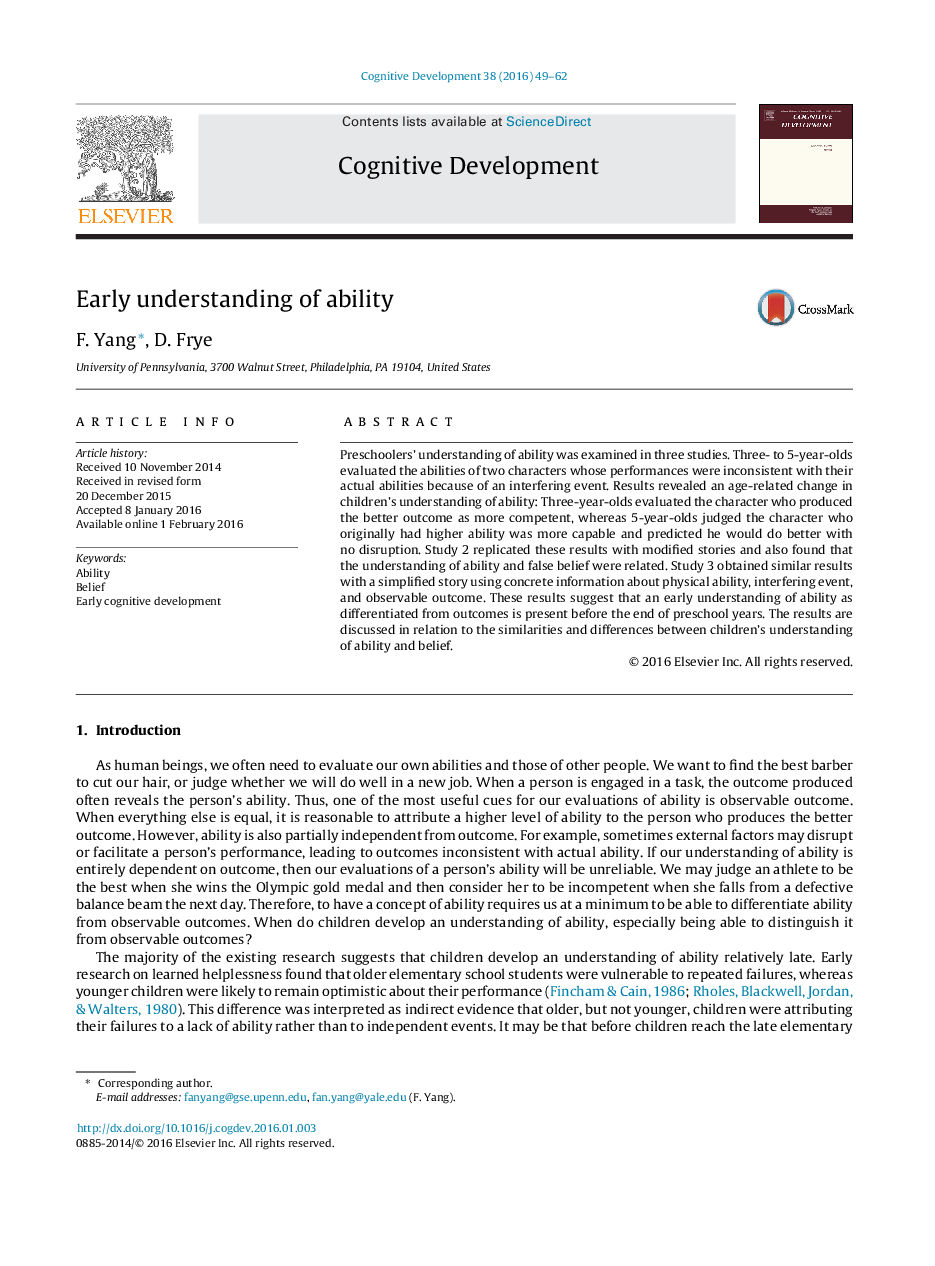| Article ID | Journal | Published Year | Pages | File Type |
|---|---|---|---|---|
| 916456 | Cognitive Development | 2016 | 14 Pages |
•By age 5, preschoolers were able to separate ability from the outcome of actions.•Even accidental outcomes seemed to influence 3-year-olds’ evaluations of ability.•Children’s understanding of ability and false belief were related.
Preschoolers’ understanding of ability was examined in three studies. Three- to 5-year-olds evaluated the abilities of two characters whose performances were inconsistent with their actual abilities because of an interfering event. Results revealed an age-related change in children’s understanding of ability: Three-year-olds evaluated the character who produced the better outcome as more competent, whereas 5-year-olds judged the character who originally had higher ability was more capable and predicted he would do better with no disruption. Study 2 replicated these results with modified stories and also found that the understanding of ability and false belief were related. Study 3 obtained similar results with a simplified story using concrete information about physical ability, interfering event, and observable outcome. These results suggest that an early understanding of ability as differentiated from outcomes is present before the end of preschool years. The results are discussed in relation to the similarities and differences between children’s understanding of ability and belief.
